If you feel tired and groggy all the time, even after a good night’s rest, you could be missing out on enough high-quality deep sleep.
Deep sleep, also known as REM (rapid eye movement) sleep, kicks in about ninety minutes after you fall asleep and is an essential time of repair, pruning, memory consolidation, detoxification, and cleansing of brain and body, and many more functions.
A lack of deep sleep can result in feelings of fatigue, cognitive issues, mood swings, body burden, and much more.
Although the total time adults spend in REM sleep is relatively small (about 30 minutes total per night), if you’re sleep-deprived and/or wake up several times during the night, you could be missing out on this vital sleep stage.
The good news is, there are things you can do about it, even if you’re in a season of frequent waking (we see you, new parents and perimenopausal/menopausal gals!).
Here, you’ll learn twelve ways to increase or optimize REM sleep naturally, its benefits, and how to know if you’re getting enough.
Getting to Know Your Sleep Cycle and How REM Sleep Fits in
You’ve probably heard about the sleep cycle, but did you know it has multiple stages and some repeat throughout the night?
Here’s what that looks like.
Stage 1: Non-REM Sleep
This is the crossover time between being awake and falling asleep.
It typically lasts only a few minutes as your brainwaves, heart rate, breathing, and eye movements slow and your muscles and mind relax.
This is also when you may experience muscle twitches.
Non-REM sleep typically only happens once, unless you wake up and go back to sleep (like most people).
Stage 2: Non-REM Sleep
Also known as “light sleep,” this is the first stage of the cycle before entering deep or REM sleep. Although there is no rapid eye movement, your body goes deeper into relaxation as your nervous system, heart rate, brain, and breathing continue to slow.
Non-REM sleep (which happens in two stages) is the stage you’ll spend the most time in and return to during the sleep cycle.
Stage 3: Non-REM Sleep
This is the second stage of non-REM sleep that allows you to wake up feeling rested and energized. It happens during the first half of the night and lasts longer than the first stage of non-REM sleep.
People are usually difficult to awaken during stage 3, and brain waves become very slow.
Stage 4: REM (Deep) Sleep
Although stage three is also a time of deep sleep (hence why it’s hard to wake up), stage 4 is considered the deepest stage of sleep, aka: REM sleep.
REM sleep first happens about an hour and a half after you fall asleep, and you will go in and out of this stage throughout the night.
As the name states, your eyes move rapidly when closed during the stage, and your brain wave activity becomes similar to what’s experienced during wakefulness.
Breathing, heart rate, and blood pressure increase, and breathing may become irregular.
This is also when we spend the most time dreaming, and our arms and legs become paralyzed (hence the feeling of not being able to run or move during a dream) to protect you from acting out your dreams.
You will go through all four of these stages every night.
However, since you go in and out of deep sleep, the duration of your sleep determines how much REM sleep you’ll get.
How Much REM Sleep Do You Need?
Your REM sleep needs change dramatically as you age.
For example, infants spend about half their sleep time (16-18 hours a day) in REM sleep.
Adults only spend about 20% of their time in REM sleep, and adults over 65 spend 17% of their time there.
Although much about the sleep cycle remains a mystery, REM sleep is closely tied to the health of the developing brain, which is why babies need so much of it.
Adult brains are continually developing, too—learning, creating new memories, storing and processing information and experiences, etc.---which is why we need our deep sleep too.
How Much Deep Sleep Do You Need?
As mentioned previously, most adults spend about 20% of their night in deep sleep.
So, sleeping the recommended 7.5-9 hours per night works out to about 90-108 minutes of deep sleep.
So, the magic formula for getting enough deep sleep is ensuring you’re getting enough sleep overall.
Although there’s no magic number (some people need less, some need more), general recommendations are:
- 16-18 hours for babies
- 9.5-12 hours for school-aged children and teens
- 7.5 - 9 hours for adults
Lack of REM sleep can lead to cognitive and memory issues, mood swings, fatigue, trouble problem solving, as well as other physical ailments associated with sleep deprivation, such as cardiovascular effects, blood sugar issues, lowered immunity, and neurodegenerative disease.
If you’re Unable to get Adequate Sleep, Take Heart!
Nature knows there are times when sleep is at a premium and has built in protective mechanisms.
Napping can help you catch up on the first three stages of sleep, and even REM sleep if you nap long enough.
It’s also possible your body will enter REM sleep faster when you’re sleep-deprived, to compensate for lost time. One example is entering a vivid dream state very quickly after falling asleep.
Sleep-deprived parents whose babies or children finally sleep longer stretches at night often report this phenomenon.
Also, although it was once believed you couldn’t catch up on sleep, new research suggests you can (which makes perfect sense).
So don’t stress and do your best! The following section’s sleep tips will help.
12 Ways To Increase REM Sleep Naturally
As you can see, getting enough REM sleep—and all phases of sleep—is critical to every aspect of healthy physical, mental, and emotional function.
The good news is, you can increase REM sleep naturally using simple lifestyle changes, dietary principles, and supplements.
1. Cut Back or Eliminate Caffeine
Caffeine may help start up your engines in the morning.
However, it can also interfere with your sleep quality, increase stress and anxiety, and reduce deep sleep.
Many health and sleep experts recommend limiting yourself to one cup of coffee or tea daily and stopping caffeine at noon.
If this works for you, great! You can have your coffee and drink it too (before noon, if possible).
If it doesn’t, you’ll want to consider cutting back further or even eliminating caffeine altogether (gasp!).
Although it’s not a popular option, breaking the caffeine addiction has various benefits, including:
- Reducing stress and anxiety
- Promoting healthier nutrient levels
- Easier, deeper sleep
- Less headaches
- Lower blood pressure
Plus, with so many delicious caffeine-free alternatives, you can still enjoy the perks of a warming, energizing, and ritualistic beverage without losing sleep.
Deep sleep pro tip: Remember, caffeine isn’t just in coffee and tea.
It’s also found in chocolate, energy drinks, pre-workout, sports nutrition supplements, weight-loss supplements, matcha, yerba mate, green tea, and other coffee shop beverages.
Learn more in: 25 Natural Energy Boosters: Caffeine And Coffee Alternatives
2. Make Your Bedroom a Sleep Oasis
Bedrooms should encourage and invite sleep and relaxation.
This means keeping things simple, neat, comfortable, distraction-free, dark, and ultra-cozy.
Research has shown that clutter, for example, can interfere with sleep by causing stress and anxiety.
Likewise, having television or devices in the room can also hinder deep and restful sleep (more on this in subsequent sections).
Instead, focus on creating the most comfortable, simple, and distraction-free oasis possible.
Some tips for creating a sleep oasis include:
- Do a quick tidy up in the morning and before bed. Baskets and designated drawers can make organizing your bedroom much easier.
- Splurge on the most comfortable bedding you can find, ideally made from breathable, natural fibers such as cotton or linen.
- Keep a shelf or bedside table within reach so you don’t have to get up to get water, your journal, your night guard, etc.
- Opt for an analogue alarm clock vs. a light-emitting clock or phone.
- Keep devices out of the bedroom, even if they’re charging (more on this below).
- Use lamps or dimmer switches to keep lighting low at night.
- Banish televisions, tablets, computers, and phones from your bedroom.
- Dust frequently, vacuum regularly, and wash your sheets in hot water with fragrance-free natural soap to help eliminate dust, dust mites, and potential allergens.
- Consider using an air purifier in your bedroom during the day to help with congestion or allergies at night.
- If you wake up with a dry mouth or throat, try running a humidifier at night (cool mist in the summer, warm mist in the winter) to enhance comfort.
Bottom line: Keep your bedroom a simple, clean, distraction-free sleep zone.
3. Sleep Cool
Various studies have shown that sleeping in a cold bedroom helps improve deep sleep and overall sleep quality.
It works by supporting your body’s natural temperature drop before bed and enhancing melatonin production (your master sleep hormone).
However, research also suggests this can work against you if you don’t bundle up. So keep the air cool, but cozy up with warm blankets and breathable natural fiber bedding.
Ideally, keep your bedroom between 60-67 degrees by opening windows, using fans, lowering the heat, or turning down the A/C.
4. Try These Calming Herbs
Herbal teas are a healthy and tasty way to wind down before bed and have proven relaxation and sleep-supportive benefits.
Some of the best herbs to promote deep sleep include:
- Ashwagandha: An ancient Ayurvedic herb shown to improve various aspects of sleep quality.
- Chamomile: A well-known relaxant and nervine herb (nerve-supportive) popular in herbal sleep teas
- Tulsi: Also known as “holy basil,” this Ayurvedic herb is well-known for its relaxing and stress-reducing properties.
- Lemon Balm: This common lemony herb has been shown to help support normal sleep, reduce stress, soothe the nerves, and may be especially beneficial for menopausal women.
- Valerian: It is believed valerian was the inspiration for the name valium. It’s well-known and studied for its sleep-inducing and relaxation properties.
These herbs are generally safe and non-habit-forming, but always talk with your doctor or healthcare practitioner before taking herbal supplements.
5. Exercise Daily
A sedentary lifestyle does not allow for adequate energy expenditure that normally promotes deep sleep.
Exercise is also an excellent stress buster. Research shows it can shorten the time it takes to fall asleep and enhance slow-wave/deep sleep.
The general recommendation is to exercise at least 30 minutes a day with a good balance of cardiovascular activity and weight-bearing exercises.
If you can get in 7500 steps a day, even better!
If you find exercise hypes you up, consider moving your routine earlier in the day, or take it down a notch and try a long walk and/or weight lifting vs. HIIT or a lengthy cardio session.
Deep sleep pro tip: Avoid exercise-enhancing supplements that may contain caffeine.
6. Get a Handle on Stress
If a racing mind or worry keeps you up (or wakes you up), it’s time to reframe your relationship with stress.
Stress is inevitable. We cannot eliminate it or run from it. Therefore, we must learn how to manage creatively.
Some helpful ways to reduce a racing mind or worrying include:
- Journaling out your thoughts, worries, and to-do lists before bed, and writing down what you accomplished that day
- Exercising daily
- Practicing mindfulness and/or prayer
- Practicing deep breathing before bed
- Talking out your thoughts or worries with a loved one or counselor
- Practicing yoga
- Spending time in nature
- Gratitude journaling
- Ask for help from your spouse, family, friends, or neighbors—there is no shame in it, and it helps normalize the fact that no one can do it all!
- Grounding by walking around barefoot, which naturally reduces stress and anxiety
- Spending time with friends and family
- Putting things in perspective by volunteering or helping friends or neighbors
If practicing stress management techniques isn’t enough, consider getting extra help from a counselor or other mental health professional.
Cognitive behavioral therapy, for example, has been shown to be very effective for helping with excessive worry or a racing mind.
7. Create a Bedtime Routine (and Stick With it)
Routine is foundational to our sleep-wake cycle.
In nature, for example, the sun's rising and setting naturally primes the body for sleeping and waking.
However, most of us don’t have the luxury of rising and falling with the sun, which is why we need routine.
Various studies have shown that creating a bedtime routine can help improve deep sleep, reduce the time to fall asleep, and relieve stress.
The kicker is that you have to do it every night (or most nights).
Here are some essential components of a healthy bedtime routine:
- Go to bed at the same time every night.
- Wake up at the same time every morning.
- Do something relaxing before bed, like taking a bath, reading, or drinking a cup of tea.
- Dim the lights and turn off devices when the sun sets, or at least 1-2 hours before bed
- Turn down the temperature in your room.
Like most new routines, it’s vital to stick to it for at least a few weeks to make it a habit and retrain your brain.
After the routine is established, you can have more freedom to change it up.
8. Put Alcohol To Bed
Alcohol can definitely be relaxing and even help one fall asleep.
However, multiple studies have shown that alcohol consumption, especially regular or extreme consumption, interferes with deep sleep.
Part of this is due to alcohol’s effects on the nervous system and hormonal system, both of which are intricately involved in the sleep cycle.
Alcohol has also been shown to prevent entry into deep sleep, especially if consumed in excess.
This may not be a big deal if you only drink occasionally or stick to one drink a night or a few times a week.
However, pay attention to how your sleep changes when you do have a drink.
Chances are, you’ll sleep better and wake up more refreshed without it.
9. Increase Magnesium-Rich Foods or Try a Supplement
Magnesium is a wildly popular supplement for sleep, reducing muscle soreness, and reducing stress.
Also known as “the relaxation mineral”, various studies have shown magnesium has a calming effect on the nervous system, muscles, and brain.
It’s also been shown to promote deep sleep, reduce stress, promote normal melatonin production, and support the parasympathetic nervous system.
Magnesium may also help with certain conditions that hinder sleep, such as muscle soreness, PMS, or leg cramps.
Magnesium-rich foods include:
- Dark leafy greens
- Legumes
- Mangoes
- Dark Chocolate
- Avocadoes
- Bananas
- Nuts and seeds
- Potatoes with skins on
- Plantains
You can also take a magnesium supplement, Like Country Life High-Absorption Magnesium Glycinate, to help fill nutritional gaps.
Learn more in: Magnesium Glycinate vs. Citrate: Which Form Is Best?
10. Make Your Bedroom a Device-Free Zone
As mentioned previously, electronic devices, including phones, tablets, and computers, do not belong in a sleep-supportive bedroom.
The reasons are multifaceted.
First, these devices emit artificial blue light, which has been proven to disrupt the sleep cycle.
Secondly, notifications from devices are distracting, ramp up your stress response, and interfere with all phases of sleep.
Thirdly, electronic devices emit electromagnetic fields, which some research suggests can interfere with sleep and harm overall health.
Fourth, “doom scrolling” is generally recognized as harmful or at least unproductive to mental/emotional health and can increase anxiety.
Finally, research has shown nighttime phone use impairs deep sleep, cognitive function, and overall health.
If, like most people, you don’t have a landline and don’t want to be unreachable should an emergency arise, turn off notifications, leave your phone outside the bedroom, and turn up the ringer.
Tell your friends and family who may call you in a crisis that you are doing this so they know to call vs. text or try to reach you another way.
Ideally, stop staring at your screen 1-2 hours before bed, shut the phone off until morning, and do not scroll in bed or use your phone as an alarm clock.
11. Sleep in a Very Dark Room
Darkness naturally signals the body to wind down and produce melatonin, the body’s master sleep hormone.
Melatonin rises and falls daily and night in response to the natural sleep-wake cycle.
It starts to increase when the sun goes down, and peaks around midnight, signalling your body to rest and supporting the various sleep cycles.
Therefore, if you have trouble falling asleep or staying asleep, dimming the lights as the sun sets and darkening your room by removing any sources of light (clocks, devices, nightlights, hall lights, light coming in the window) can be a game-changer.
Some helpful tips include:
- Switching to an analog clock
- Removing devices
- Installing blackout curtains
If sleeping in the dark makes you uncomfortable, consider placing a touch lamp or light next to your bed within easy reach, so you can light up your room as needed.
If sleeping without a light is too unnerving (children, for example, typically sleep better with a night light), choose nightlights with low- to no-blue light and no Smart features.
You could also try opening or slightly opening your curtains or blinds to let in the moonlight.
12. Get Morning Light Into Your Eyes
Darkness isn’t the only thing that regulates the sleep cycle. Morning light is also critical.
When the eyes perceive bright, unfiltered, natural morning light, it signals to the brain that it’s time to wake up, and sets the inner clock for normal waking and sleeping.
Ideally, you want to get outside as soon as possible, first thing in the morning, without sunglasses.
Do not stare directly at the sun, but just spend a few moments enjoying the morning light and breathing in the fresh air.
Or better yet, take a walk, jog, meditate, or journal, and kill two birds with one stone.
This, coupled with dimming the lights at night, switching off devices 1-2 hours before bed, and sleeping in a dark room, is often all that’s needed to improve overall sleep quality and depth.
Try it. It’s simple yet powerful!
Looking For Sleep Support Supplements? Country Life Can Help
Since 1971, Country Life has been leading the charge in sustainable, efficacious, and natural supplements to support all aspects of health.
For sleep and stress, we offer various nutrition-based solutions, including:
- Stress Shield Nighttime: A unique formula of L-theanine, Ashwagandha, and GABA designed to support the body’s ability to deal with stress while encouraging sleep.
- Chelated Magnesium Glycinate: An ultra-gentle and absorbable form of magnesium that promotes a healthy stress response, sleep cycle, bone health, musculoskeletal health, and more.
- Gut Connection Stress Balance: A clinically studied prebiotic packed with ingredients to help improve and maintain digestive health, promote normal neurotransmitter function, and aid in stress reduction.
All our products, from raw ingredients to finished supplements, are rigorously tested to ensure a clean product and accurate potency in our NSF-GMP-compliant, certified gluten-free, and certified organic manufacturing facilities.
We maintain our celebrated quality through extensive research, natural sourcing, and accurate labeling.
Sources mentioned in this article:
- Patel AK, Reddy V, Shumway KR, et al. Physiology, Sleep Stages. [Updated 2024 Jan 26]. In: StatPearls [Internet]. Treasure Island (FL): StatPearls Publishing; 2024 Jan.
- “Brain Basics: Understanding Sleep”. NIH National Institute Of Neurological Disorders And Stroke.
- “Role of sleep deprivation in immune-related disease risk and outcomes”. Communications Biology.
- “Good News: You Can Make Up for Lost Sleep Over the Weekend (Kind Of)”. The Cleveland Clinic.
- “The effect of caffeine on subsequent sleep: A systematic review and meta-analysis”. Sleep Med Rev.
- “Benefits of Quitting Caffeine”. Yale New Haven Health.
- “People at risk of hoarding disorder may have serious complaints about sleep”. Science Daily.
- “Association of Melatonin Production with Seasonal Changes, Low Temperature, and Immuno-Responses in Hamsters”. Molecules.
- “Effects of thermal environment on sleep and circadian rhythm”. Journal of Physiological Anthropology.
- “A randomized, double blind, placebo controlled study to evaluate the effects of ashwagandha (Withania somnifera) extract on sleep quality in healthy adults”. Sleep Med.
- “A randomized, double-blind, placebo-controlled trial investigating the effects of an Ocimum tenuiflorum (Holy Basil) extract (HolixerTM) on stress, mood, and sleep in adults experiencing stress”. Front Nutr. 2022.
- “Valerian for sleep: a systematic review and meta-analysis”. Am J Med.
- “Valerian/lemon balm use for sleep disorders during menopause”. Complementary Therapies in Clinical Practice.
- “Anti-stress effects of lemon balm-containing foods”. Nutrients.
- “Exercise improves the quality of slow-wave sleep by increasing slow-wave stability”. Scientific Reports.
- “The Efficacy of a Pennebaker-Like Writing Intervention for Poor Sleepers”. Behavioral Sleep Medicine – Volume 1.
- “20 Ways To Relieve Stress”. The Cleveland Clinic.
- “Cognitive Behavioral Therapy for Insomnia (CBT-I): A Primer”. Klinicheskaia i Spetsial'naia Psikhologiia = Clinical Psychology and Special Education.
- “The Effects of Alcohol on Quality of Sleep”. Korean Journal of Family Medicine.
- “Association of magnesium intake with sleep duration and sleep quality: Findings from the CARDIA study”. Sleep.
- “Oral Mg(2+) supplementation reverses age-related neuroendocrine and sleep EEG changes in humans”. Pharmacopschiatry.
- “Magnesium and Stress”. Magnesium in the Central Nervous System.
- “Magnesium supplementation alleviates premenstrual symptoms of fluid retention”. Journal of Women’s Health.
- “Magnesium Fact Sheet for Consumers”. National Institutes of Health Office of Dietary Supplements.
- “Nocturnal Smartphone Use Affects Sleep Quality and Cognitive and Physical Performance in Tunisian School-Age Children”. Eur J Investig Health Psychol Educ.
- “Blue Light Has A Dark Side”. Harvard Health Publishing.
- “Doomscrolling Dangers”. Harvard Health Publishing.
- “Effect of extremely low frequency electromagnetic field exposure on sleep quality in high voltage substations”. Iranian J Environ Health Sci Eng.
- “Systematic review of light exposure impact on human circadian rhythm”. Chronobiol Int.
- “Effects of light on human circadian rhythms, sleep and mood”. Somnologie (Berl).

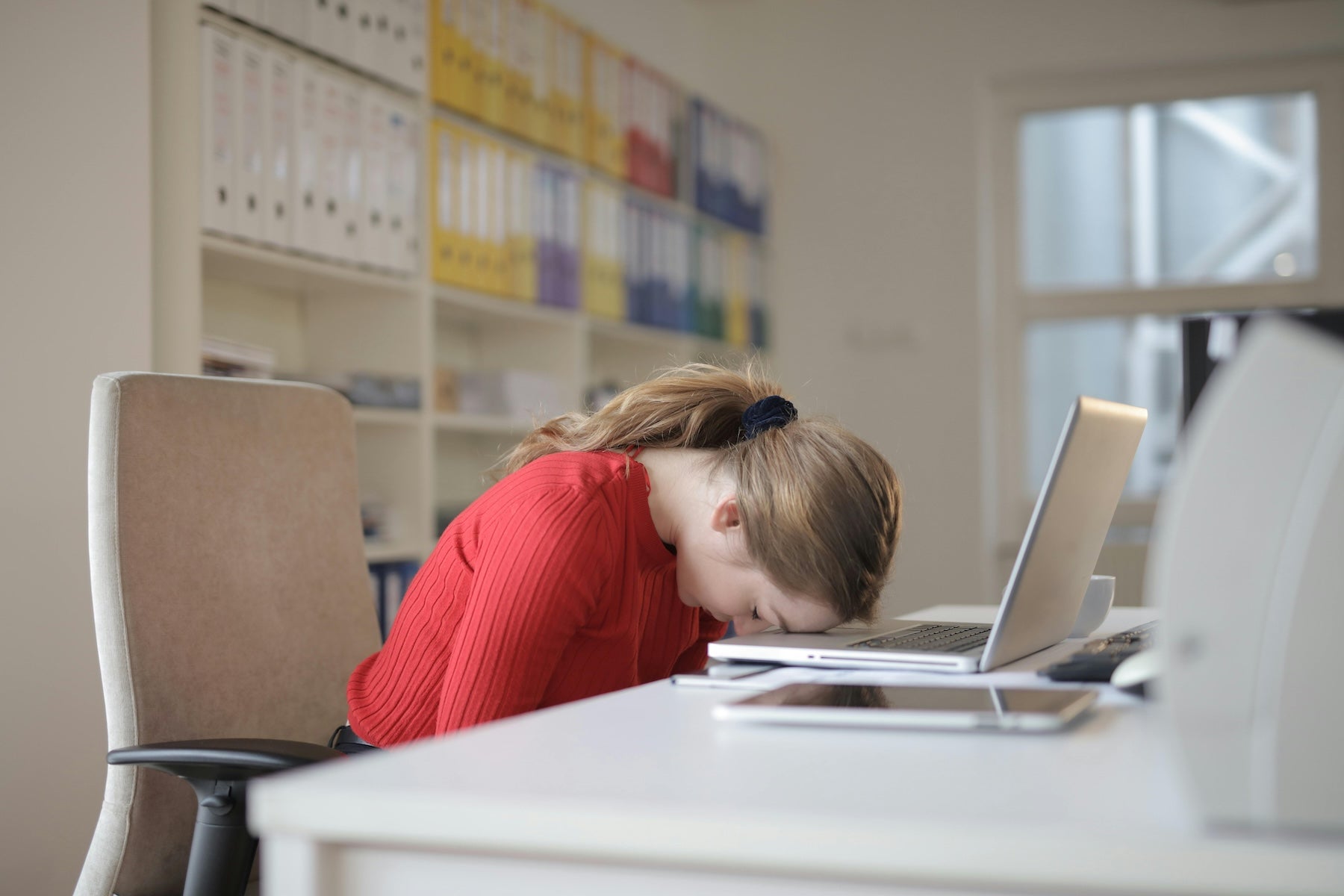
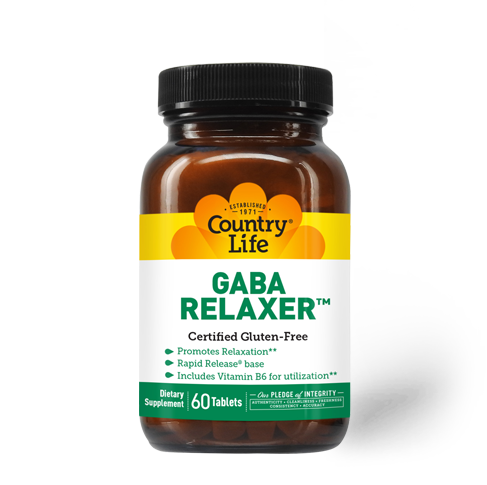
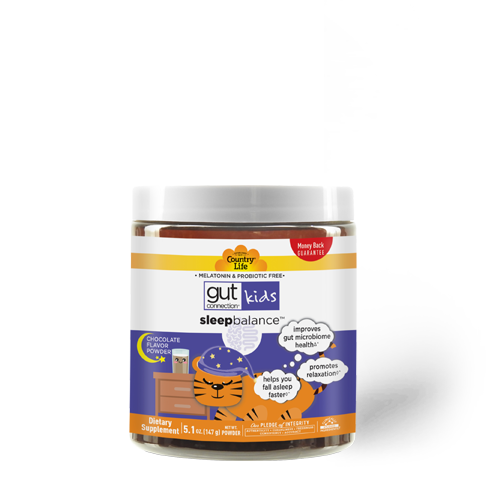
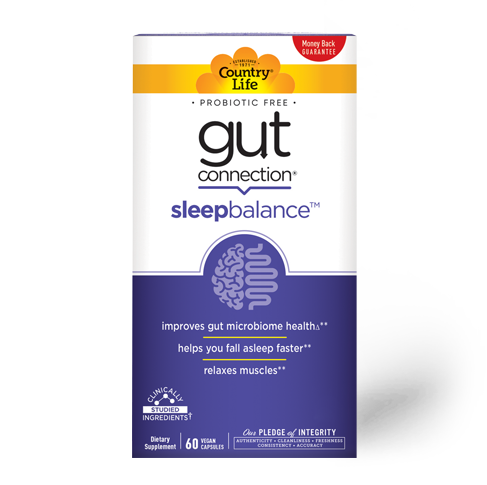
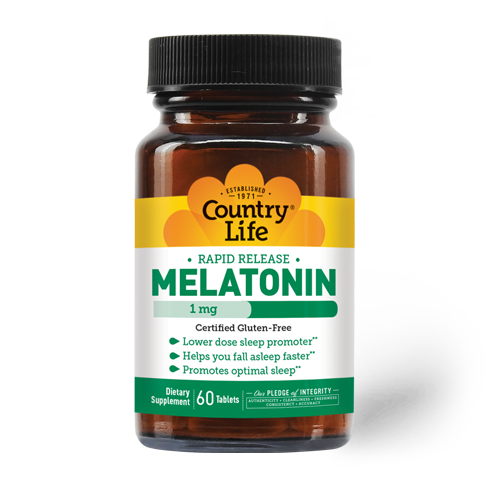
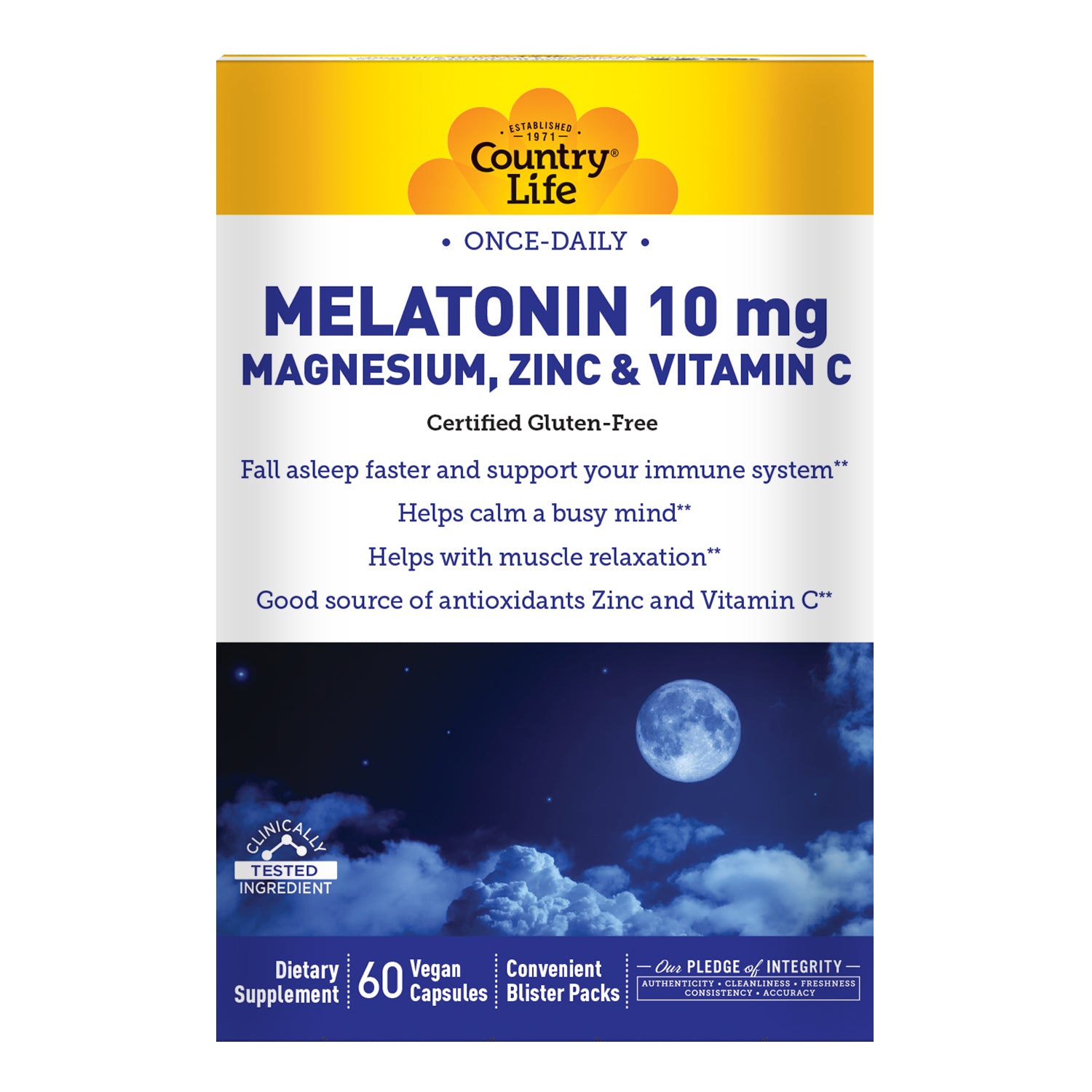
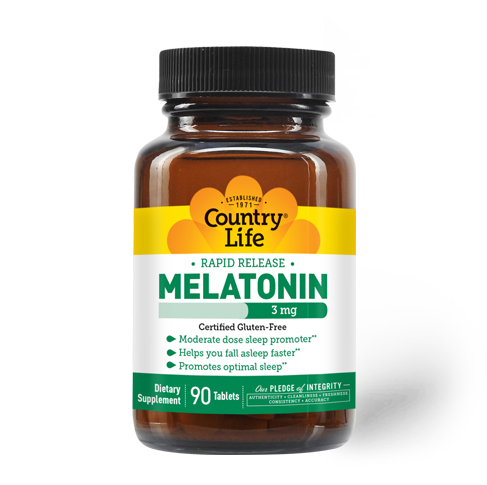
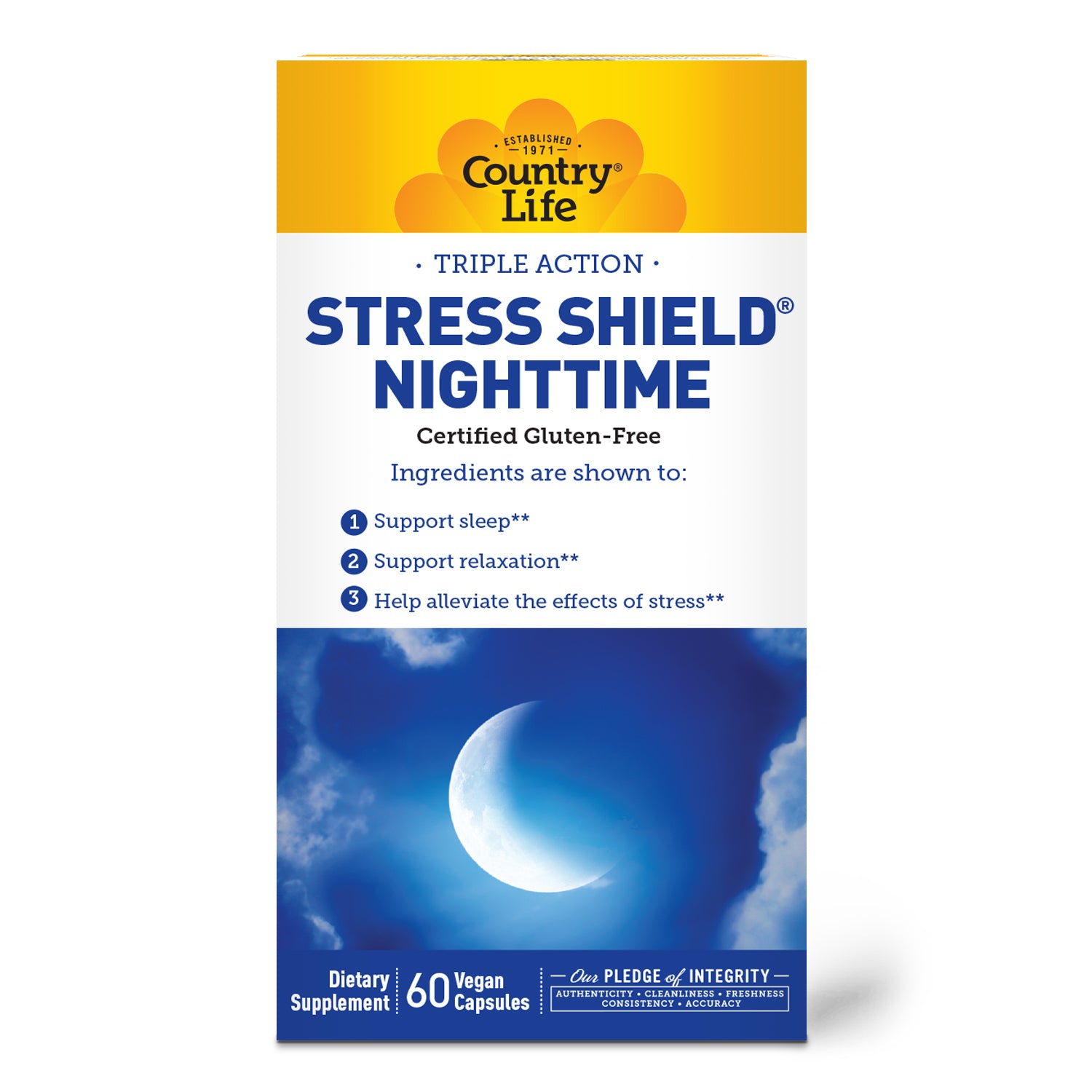










Share:
15 Super Healthy Green Foods + Healthy Meal & Snack Ideas
Can You Give a Baby Melatonin?